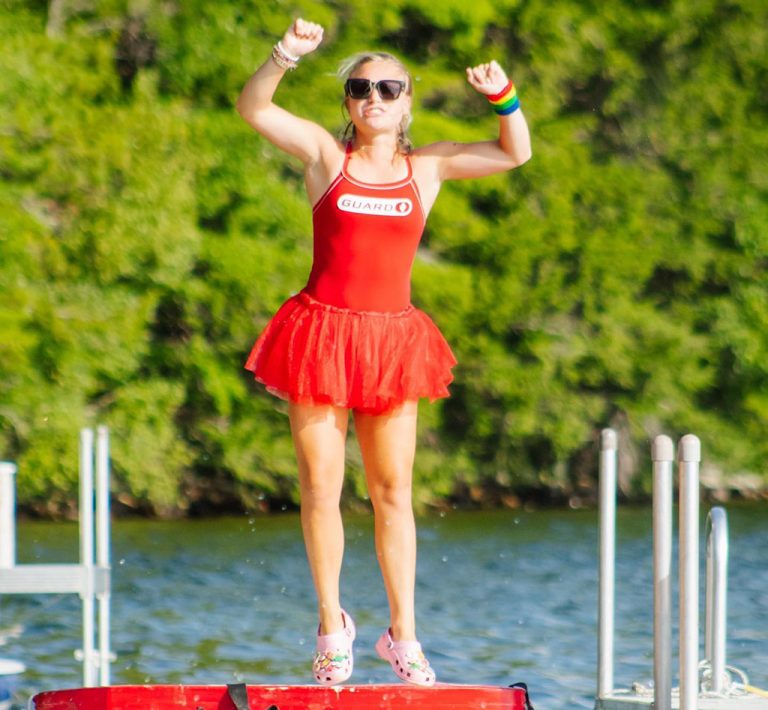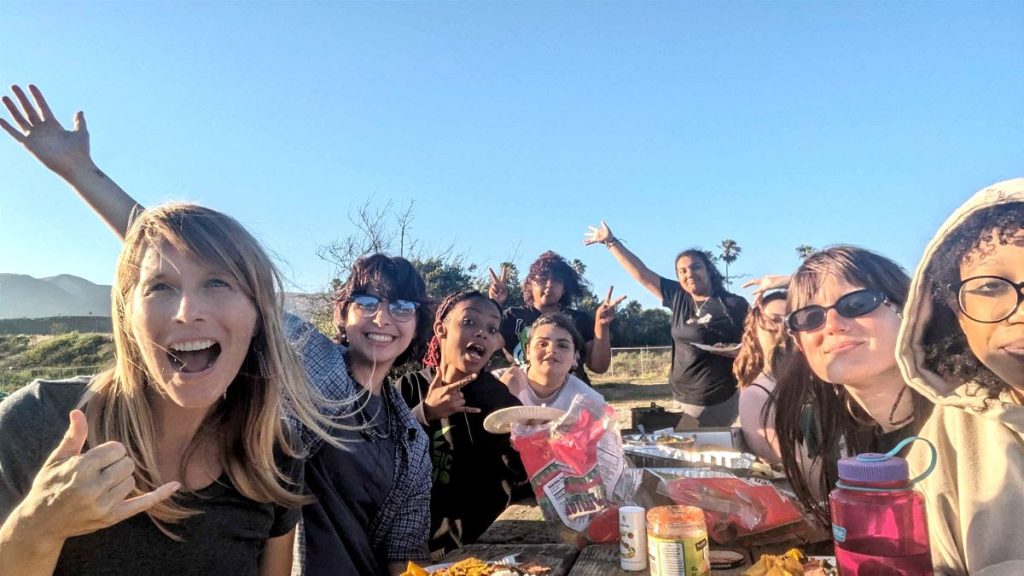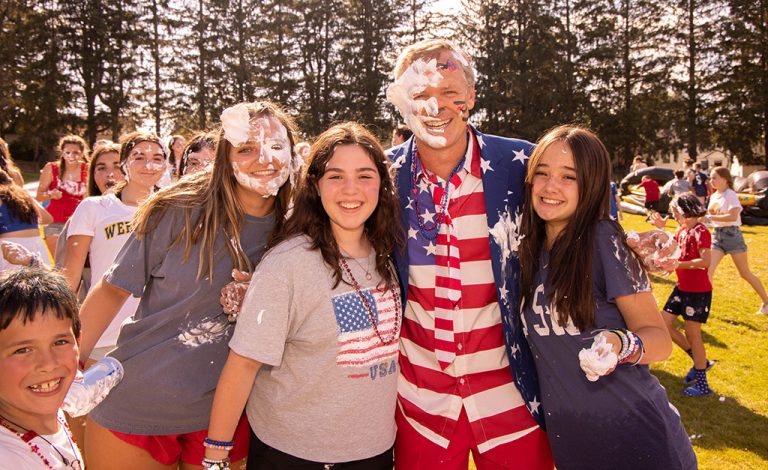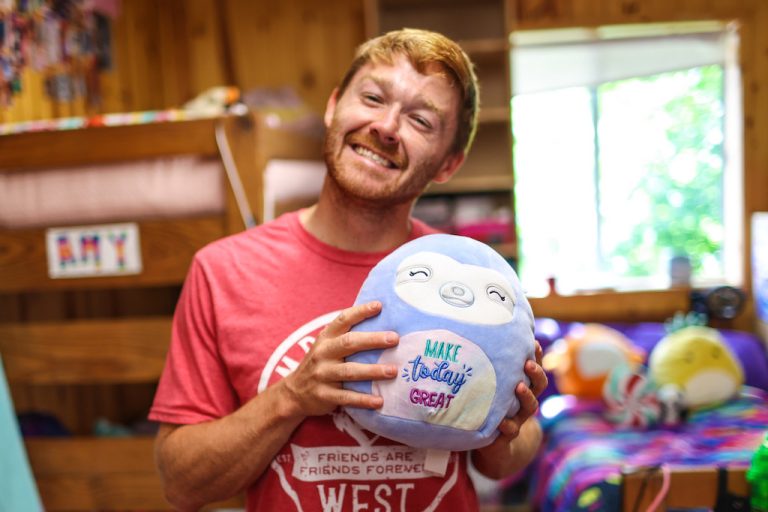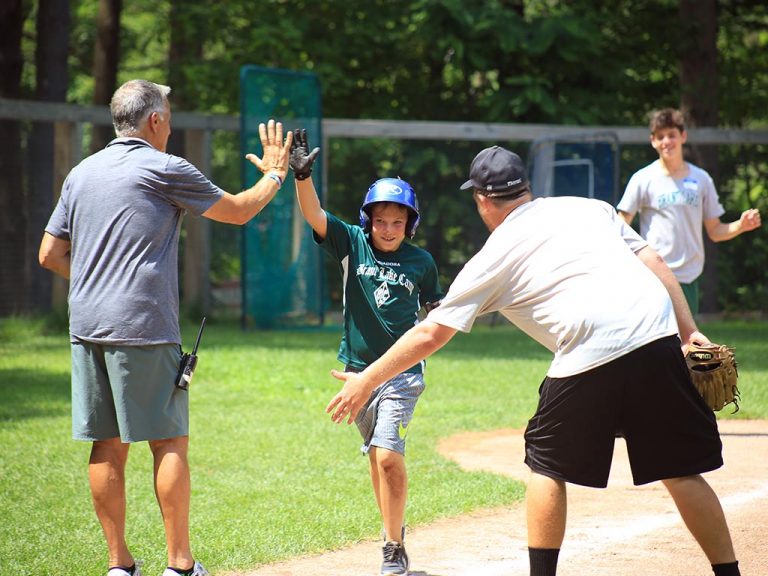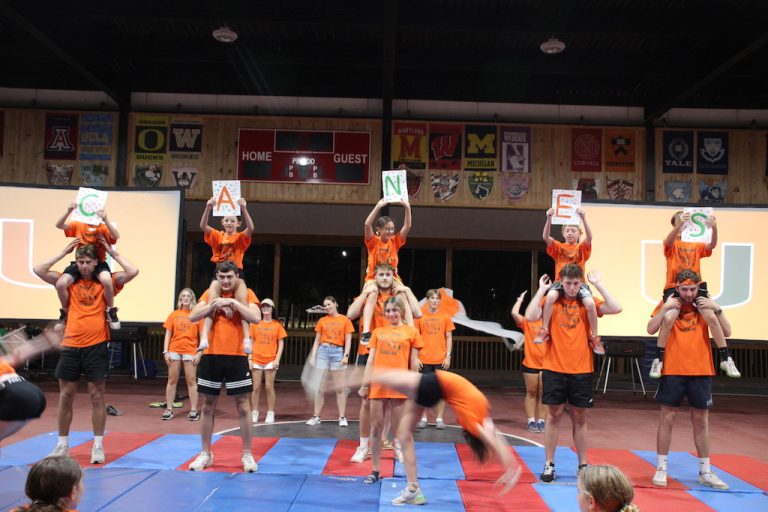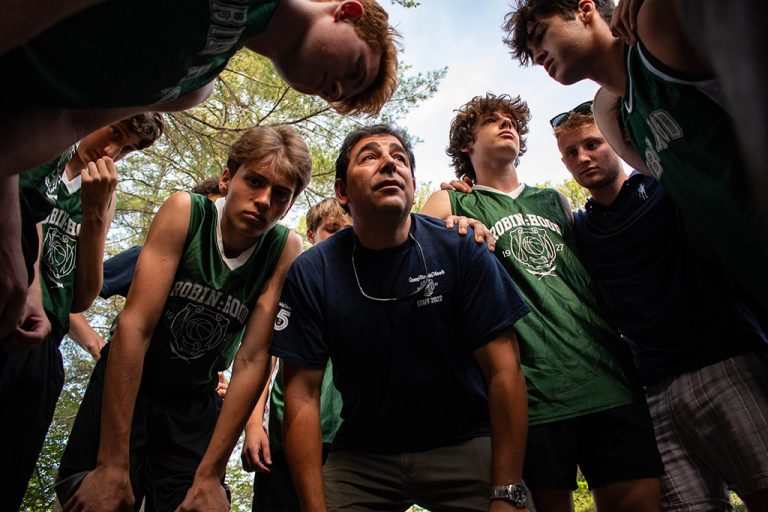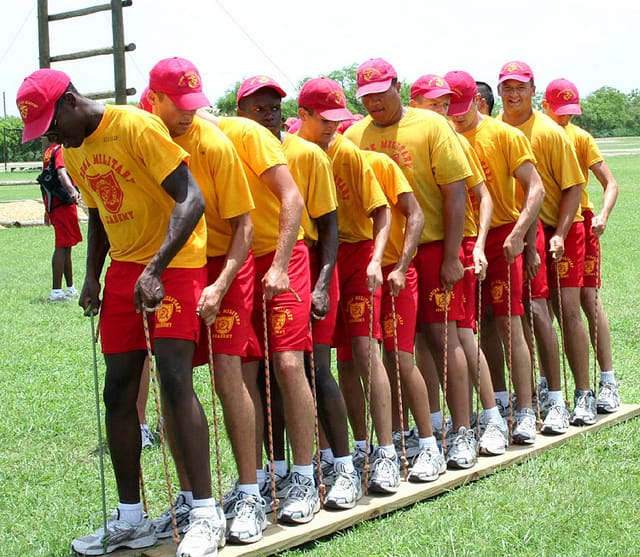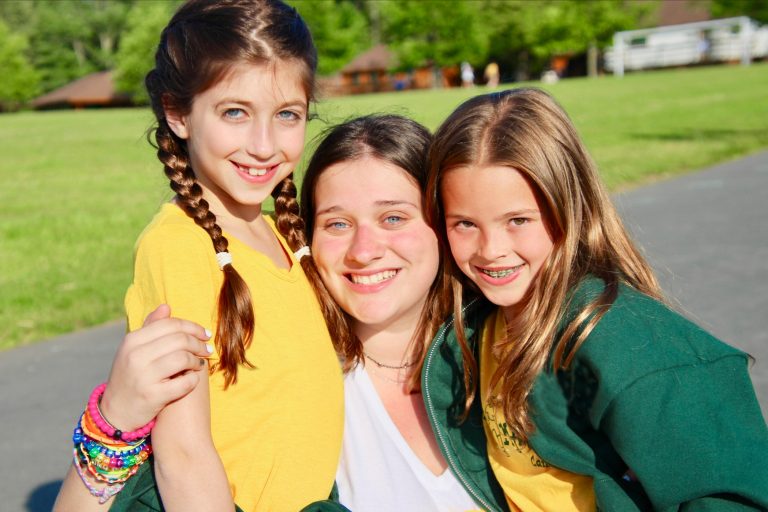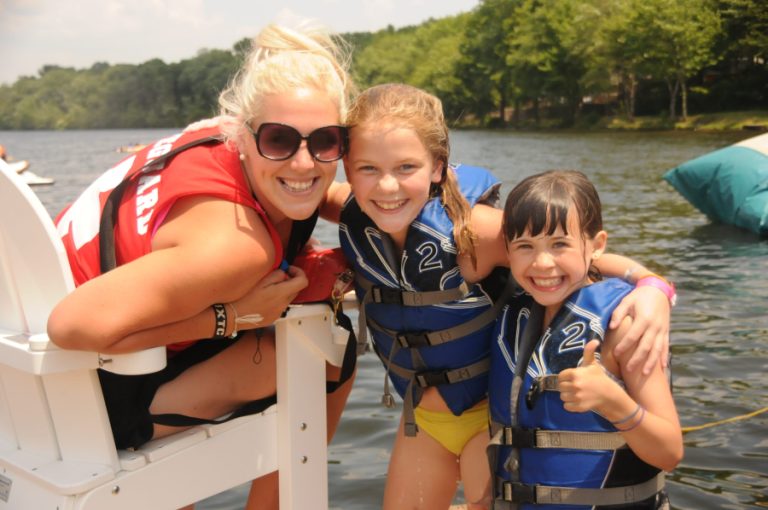Working at Camp
As a camp counselor, you’re about to embark on a fulfilling and transformative experience. Your role is to create a safe and memorable environment for campers while fostering personal growth and a sense of adventure. Here’s what you can expect and how to excel in your role:
Daily Routine
- Morning Routine: Camp mornings often start early. You’ll help wake up campers, assist with morning activities, and ensure everyone is ready for the day.
- Activity Sessions: Campers typically participate in various activities throughout the day, from sports and arts to outdoor adventures and team challenges. As a counselor, you’ll lead, supervise, and actively engage in these activities.
- Meals: Meals are a vital part of camp life. You’ll accompany campers to the dining hall, help with meal distribution, and ensure that campers follow dietary restrictions and proper table manners.
- Free Time: Campers have free time to explore, socialize, and choose from various recreational options. During these periods, you’ll be available to provide guidance, supervise, and encourage campers to make positive choices.
- Evening Activities: Evenings often feature group activities, campfires, talent shows, or special events. You’ll participate in and help organize these activities to create a fun and inclusive atmosphere.
- Bedtime Routine: Ensure campers are prepared for bedtime, help with bedtime rituals, and supervise cabins or tents during the night to ensure campers’ safety and comfort.
Building Relationships
- Be Approachable: Create an open and approachable persona that encourages campers to confide in you, share their thoughts, and seek guidance when needed.
- Active Listening: Pay close attention to campers’ concerns, joys, and challenges. Show empathy and understanding when campers want to talk.
- Lead by Example: Demonstrate the behavior and values you want campers to emulate. Model kindness, inclusivity, respect, and enthusiasm.
- Teamwork: Collaborate effectively with your fellow counselors and camp staff. Building a supportive team environment enhances the camp experience for everyone.
- Mentorship: Take the opportunity to be a positive role model and mentor for campers. Encourage their personal growth, self-confidence, and leadership skills.
Handling Challenges
- Conflict Resolution: Conflicts among campers are common. Develop conflict resolution skills to help campers resolve issues, encourage communication, and promote positive relationships.
- Homesickness: Many campers may experience homesickness, especially at the beginning of camp. Be empathetic, provide reassurance, and help them engage in activities to distract from homesickness.
- Safety Concerns: Prioritize camper safety at all times. Be vigilant during activities, follow camp safety protocols, and report any safety concerns to camp leadership.
- Communication: Maintain clear and open communication with camp directors and fellow staff members. Discuss any challenges or issues promptly to find solutions and provide the best experience for campers.
- Self-Care: Camp can be physically and emotionally demanding. Practice self-care by getting enough rest, staying hydrated, and taking breaks when needed to recharge.
- Flexibility: Camp life is full of surprises, so be flexible and adaptable. Embrace the unexpected and view challenges as opportunities for growth.
Making the Most of Your Experience
- Personal Growth: Camp counseling is a transformative experience that will enhance your leadership, communication, and problem-solving skills. Embrace the opportunity for personal growth.
- Resume Building: Keep a journal of your experiences, responsibilities, and achievements at camp. These details can be valuable when updating your resume or applying for future jobs.
- Networking: Build connections with fellow counselors and camp professionals. Networking can open doors to future job opportunities or new friendships from around the world.
- Camp Traditions: Engage in camp traditions and activities with enthusiasm. These traditions often hold special meaning for campers and create lasting memories.
- Impact on Campers: Understand that your role as a camp counselor has a profound impact on campers’ lives. The relationships you build and the lessons you impart can leave a lasting positive impression.
Working at camp is a unique and rewarding experience that offers personal and professional growth, unforgettable memories, and the opportunity to make a difference in the lives of young people. Embrace the adventure, stay positive, and cherish every moment of your summer camp journey.
Summer Camp Job Guide Table of Contents:
- Introduction
- Why Work at a Summer Camp?
- How to Use This Guide
- Types of Summer Camp Jobs
- Camp Counselor
- Activity Specialist
- Support Staff
- Eligibility Criteria
- Age Requirements
- Skills and Qualifications
- Background Checks
- Preparing Your Application
- Resume Building
- Crafting a Cover Letter
- Selecting the Right Camp
- The Visa Process
- J1 Visa for International Students
- Eligibility
- Required Documents
- Application Steps
- Work Authorization for Domestic Students
- J1 Visa for International Students
- Finding Opportunities
- Using AmericanSummerCamps.com
- Alternative Job Search Methods
- Application Tips
- Tailoring Your Application
- The Interview Process
- Reference Letters
- Preparing for Camp Life
- Packing Essentials
- Health and Safety Considerations
- Cultural Sensitivity
- Arriving in the USA
- Travel Arrangements
- Camp Orientation
- Setting Up Bank Accounts
- Working at Camp
- Daily Routine
- Building Relationships
- Handling Challenges
- Making the Most of Your Experience
- Personal Growth
- Resume Enhancement
- Networking Opportunities
- Conclusion
- The Impact of Summer Camp
- Your Next Adventure

